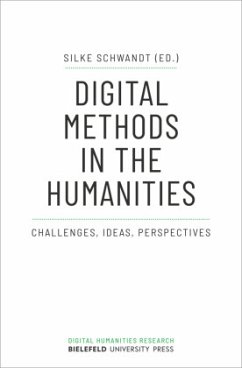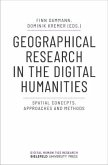Digital Humanities is a transformational endeavor that not only changes the perception, storage, and interpretation of information but also of research processes and questions. It also prompts new ways of interdisciplinary communication between humanities scholars and computer scientists.
This volume offers a unique perspective on digital methods for and in the humanities. It comprises case studies from various fields to illustrate the challenge of matching existing textual research practices and digital tools. Problems and solutions with and for training tools as well as the adjustment of research practices are presented and discussed with an interdisciplinary focus.
Hinweis: Dieser Artikel kann nur an eine deutsche Lieferadresse ausgeliefert werden.
This volume offers a unique perspective on digital methods for and in the humanities. It comprises case studies from various fields to illustrate the challenge of matching existing textual research practices and digital tools. Problems and solutions with and for training tools as well as the adjustment of research practices are presented and discussed with an interdisciplinary focus.
Hinweis: Dieser Artikel kann nur an eine deutsche Lieferadresse ausgeliefert werden.
»Als eine Sammlung konkreter Berichte über die Verwendung digitaler Methoden ist dieses Buch eine gute Einführung. Hier können geisteswissenschaftliche ForscherInnen ohne direkte Erfahrungen mit digitalen Methoden inspirierende Beispiele finden.«
Oyvind Eide, Historische Zeitschrift, 316 (2023) 20230206
Oyvind Eide, Historische Zeitschrift, 316 (2023) 20230206








